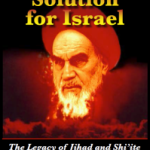By Burhanuddin Muhtadi
Asian Journal of Social Science | Vol. 37, No. 4, 2009, pp. 623-645 (23)
Abstract:
This article describes the nature of Hizbut Tahrir Indonesia (HTI) in the post-Suharto era and its views on the resurrection of the global Islamic caliphate, its opposition to the notions of democracy and nation-state. In the aftermath of Suharto’s fall in 1998, HTI has seized the opportunity to promise the establishment of a fair society under a global Islamic caliphate. The rapid rise of HTI has, more so than most other Islamist groups, been accentuated by the growing public dissatisfaction with the post-Suharto or reformasi period. There is an increasing perception in larger society that political, economic, and law reforms introduced in the reformasi era has had no significant impact to improve people’s daily lives. This deteriorating condition under post-Suharto regimes has successfully justified the HTI’s claims that Indonesia needs a radical and comprehensive system, or what HTI coined as al-khalifah al-Islamiyyah (Islamic caliphate). Looking at HTI’s grand narrative of the global Islamic caliphate and its refutation of the ideas of democracy and nation-state, it is clear that HTI has taken a number of negative steps in the direction of democratic consolidation in Indonesia.
Citation:
Rachel Ehrenfeld and Alyssa A. Lappen, “Terror Rising,” FrontPage Magazine, Dec. 7, 2005.
All Articles, Poems & Commentaries Copyright © 1971-2021 Alyssa A. Lappen
All Rights Reserved.
Printing is allowed for personal use only | Commercial usage (For Profit) is a copyright violation and written permission must be granted first.





